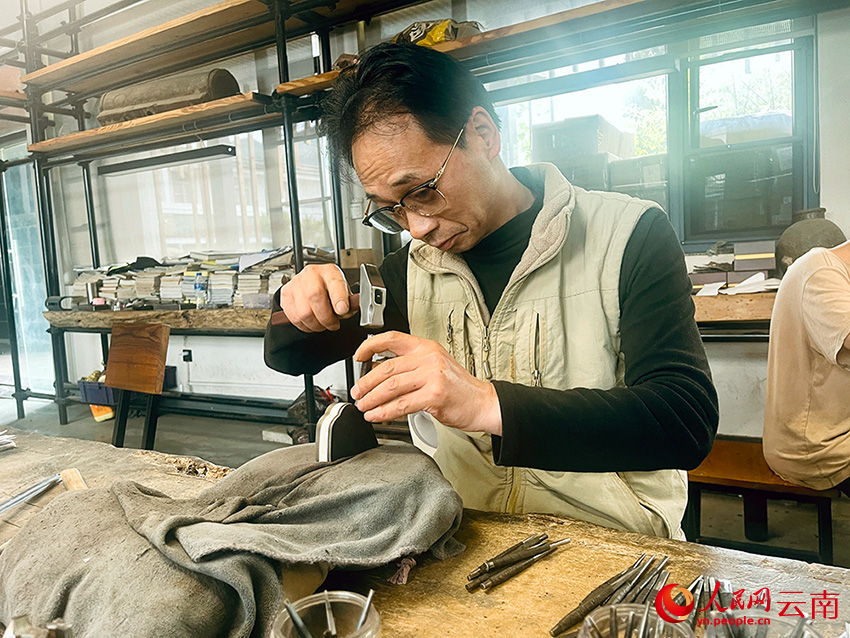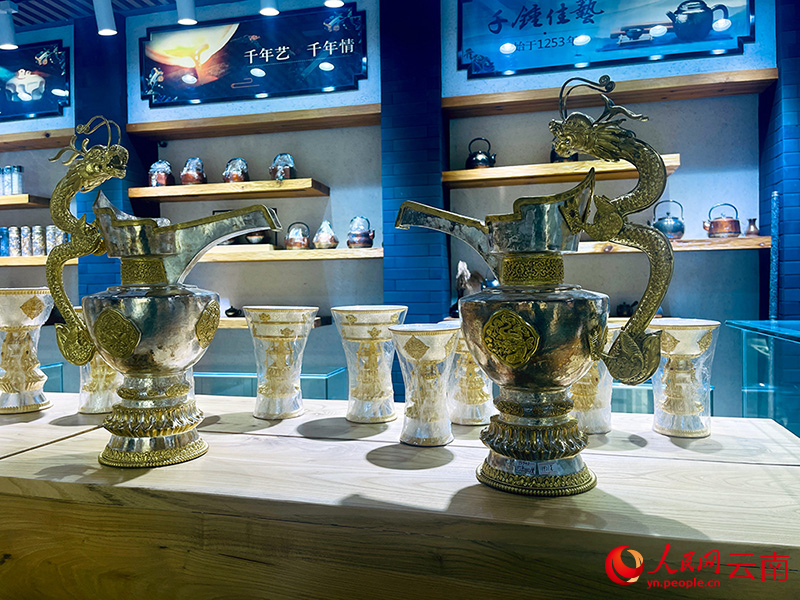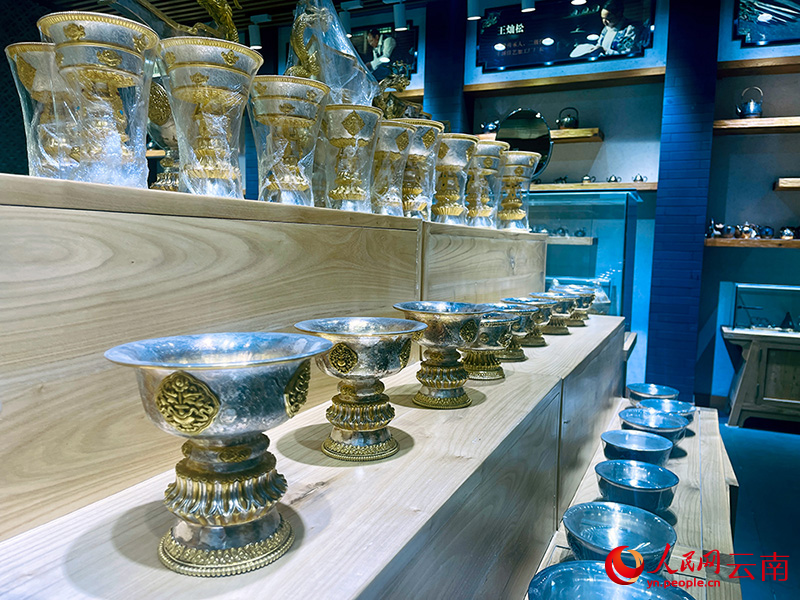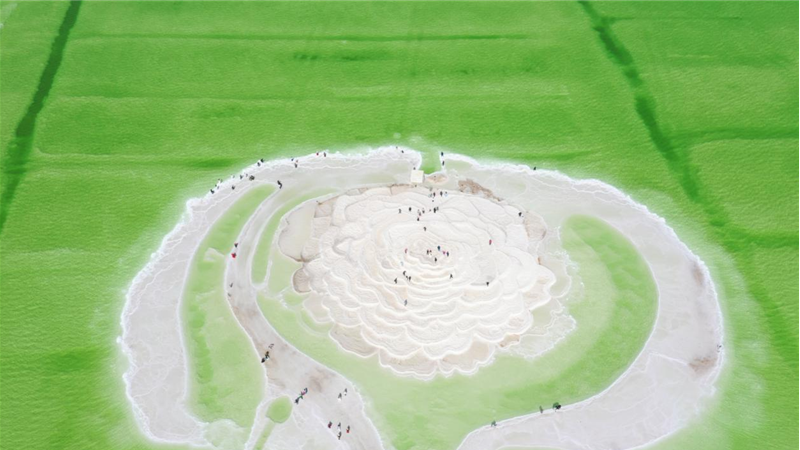Silverware crafting brings wealth to village in SW China's Yunnan
In Xinhua village, located in Caohai town, Heqing county, Dali Bai Autonomous Prefecture, southwest China's Yunnan Province, people of the Bai ethnic group have been handcrafting silverware for over 1,000 years, passing down their refined techniques from generation to generation.

A craftsman works in Caohai town, Heqing county, Dali Bai Autonomous Prefecture, southwest China's Yunnan Province. (People's Daily Online/Cheng Hao)
"There are over 3,000 silver workshops in the village, and mine's fairly modest," said 54-year-old Li Jinming.
Li began learning the craft as a child, following in his father's footsteps.
"In the past, artisans in the village would travel far and wide with a shoulder pole—bellows on one end, hammer and branding iron on the other—leaving their footprints across the provinces of Yunnan, Guizhou, and Sichuan and even Southeast Asia," Li recalled.
In November 2014, the Heqing silver craft, represented by silver processing techniques of Xinhua village, was added to China's list of national intangible cultural heritage.
Li founded his workshop in 2007.
"Back then, there was no easy way to get the word out. I had to haul samples around the country, knocking on doors just to make a sale," he said. These days, with the growing reputation of the village's silver processing techniques, customers usually come to the village looking for artisans.

Photo shows silverware produced by an ethnic jewelry factory in Caohai town, Heqing county, Dali Bai Autonomous Prefecture, southwest China's Yunnan Province. (People's Daily Online/Cheng Hao)
Li's business has grown strong, with products now sold across China.
"Most of our customers are cultural and creative shops in places like the provinces of Hainan, Qinghai, and Yunnan, as well as Xizang Autonomous Region," he said. Last year, sales of his workshop exceeded 20 million yuan (about $2.79 million).
While steady offline sales continue, Li is also exploring online channels. "We're preparing to set up our own livestreaming team," he said.
The cost of raw materials is the biggest hurdle in silverware crafting, and this year has been particularly challenging—soaring silver prices, stockpiled inventory, and tight cash flow have all piled on the pressure. At a critical moment, a 3-million-yuan loan from the Dali branch of the Industrial and Commercial Bank of China (ICBC) came through, providing timely relief for Li.

Photo shows silverware produced by an ethnic jewelry factory in Caohai town, Heqing county, Dali Bai Autonomous Prefecture, southwest China's Yunnan Province. (People's Daily Online/Cheng Hao)
With the funds in place, Li regained confidence and promptly purchased 450 kilograms of raw silver.
"Around this time in previous years, we often ran out of materials and were forced to halt production, but this year, with plenty of stock on hand, we're no longer stuck in that stop-and-start routine of working three days and shutting down for two," he said with evident relief.
The Dali branch of the ICBC launched a program to provide targeted support for artisans in traditional crafts like pottery, wood carving, silverwork, and Bai embroidery. As of the end of June, the program had issued 25.56 million yuan in loans, benefiting 18 intangible cultural heritage inheritors in Dali.
Photos
Related Stories
- Australian macadamia nuts thrive in Lincang, SW China's Yunnan
- Tradition and tech deliver Shangri-La's fungus to global tables
- In pics: Ancient town of Jianchuan in SW China's Yunnan
- Sunlight after rain turns Dali's Cangshan Mountain and Erhai Lake into majestic painting
- Trending in China | Yunnan's crunchy secret: Malong buckwheat strips
- Robot joins traditional Yunnan ethnic dance
- Drones facilitate power restoration in township cut off by floods in SW China's Yunnan
- Cactus turns barren hills into green wealth
- Silver craft in village of SW China's Yunnan gains wide recognition
- Discover the beauty of nature in SW China's Yunnan
Copyright © 2025 People's Daily Online. All Rights Reserved.









